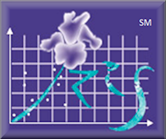SENSORY PANELS
in
Descriptive Analysis
Discrimination Testing
Quality Control (QC) Sensory
Assessors/sensory panelists are a key element in all analytical /discriminative sensory tests. In sensory science, we carefully screen, orient/ train assessors to become part of discrimination, descriptive, or quality panels and reliably gather product information on sensory differences and similarities, sensory or quality attributes and drivers.
Therefore, it is critical to skillfully select, orient/train and maintain assessors (sensory panelists) to gather reliable data and develop successful programs.
IRIS: International Resources for Insights and Solutions, LLC (IRIS)
is an internationally recognized authority in descriptive analysis and panel training. With almost 30 years of experience and having designed and implemented numerous and diverse sensory, descriptive and quality programs, IRIS works with its clients to establish best-in-class panel training programs
IRIS assists its clients in all initiatives involved in the selection and orientation/training of assessors (sensory panelists). In addition, once trained, IRIS assists in developing programs to monitor and calibrate the trained sensory panels.
- Type of assessors (Sensory panelists)
- Will employees or consumers/residents from the community be the sensory panel members?
- What are the advantages and disadvantages of using local residents vs. employees?
- Recruitment of assessors (Sensory panelists)
- Which are effective approaches to recruit sensory panel members?
- How are pre-screeners designed, and which participants’ information should be gathered?
- Which are the key factors to look for? Which factors eliminate candidates?
- Screening and selection of assessors (sensory panelists)
- Which acuity screening exercises are needed to screen the members of your sensory, descriptive or quality panel?
- Which other activities and tests are needed to explore assessors’ non acuity qualifications and personalities?
IRIS assists its clients in addressing the above questions and choosing the ideal recruitment/screening procedures to be able to select the best candidates for sensory, quality and other panels.
TYPES OF PANELS
TRAINING/ORIENTING DISCRIMINATION PANELS
- Should discrimination assessors/sensory panelists be “trained”?
- Recruitment of discrimination assessors
- Monitoring of discrimination panelists
TRAINING DESCRIPTIVE PANELS
The characteristics of the sensory descriptive program must be determined prior to designing the best screening and training approaches (Services – Descriptive Analysis)
Different descriptive philosophies and approaches to lexicon development and scaling affect the way assessors/sensory panelists are trained
- Designing and implementing the best descriptive training programs and exercises
- Do’s and don’ts in training descriptive assessors/sensory panelists
- Assessors dynamics and psychological factors during training
- Monitoring assessors/sensory panelists progress during training
- How to address issues encountered with assessors during training
TRAINING QUALITY PANELS
IRIS is a globally recognized authority and has extensive experience in the Sensory Quality Control and Quality Assurance field, and in the design and implementation of quality programs (Services – Sensory Evaluation in Quality Control and Quality Assurance)
In designing and implementing a sensory quality program , the following screening and training issues should be addressedPanel monitoring, assessment and calibration programs
Who are the sensory panelists/assessors for quality panels?
How is the screening of these assessors different from R&D sensory descriptive panels?
How is the training of sensory quality panel members different from an R&D sensory descriptive panel training?
OTHER IMPORTANT PROGRAM ELEMENTS
- ► Monitoring — The establishment/training and maintenance of sensory panels are complex activities requiring attention to ensure successful descriptive or sensory quality programs. Sensory insights groups establishing sensory panels must commit to developing, establishing and maintaining monitoring and calibration programs to ensure continued adequate performance of the sensory panels.
IRIS assists its clients in establishing the panel monitoring program required to examine assessors’/sensory panelists’ learning progress, performance and address any issues encountered.
– The elements of a sensory panel monitoring program
– How often should monitoring activities be conducted?
– Which are the key parameters to monitor?
– What kind of sensory panel monitoring data base should be built?
– Action standards and panel activities based on performance data
– How to share performance information with sensory panels
- ► Merging of new assessors with existing panel pools Attrition is inevitable with sensory panels. Therefore, new training initiatives should always be undertaken to maintain an adequate sensory panel pool.There are different approaches to training and merging new sensory panelists with an existing panel.
Specific exercises and activities should be designed and completed to ensure a successful merging of assessors and adequate performance of merged panels
IRIS assist its clients to assess the current panel, and based on the product categories and type of evaluations to be conducted, assists in determining and implementing the best training and merging panel procedures.
- ► Staff training. Training experienced assessors in staff responsibilities and panel leadership Often, the growth of a sensory program involves extensive panel activities requiring additional qualified staff.Sensory panelists who have an interest and have been identified as committed individuals can be trained to complete diverse staff activities and support a sensory program.
IRIS works with these selected assessors to build their knowledge in methods and provide them with the required information and tools for them to successfully perform their new staff activities
- ► Motivation. Design and implementation of maintenance and motivation programs for sensory panels. Sensory panelists/assessors and the panel as a whole must be monitored in terms of performance in evaluations and disposition/interest.Besides the panel performance programs, panel leaders must develop procedures and activities to maintain the sensory panelists’ interest and motivation in the program.A variety of panel and non-panel activities should be implemented and completed on a regular basis.
IRIS works with panel leaders to implement suitable panel activities to meet the above objectives
